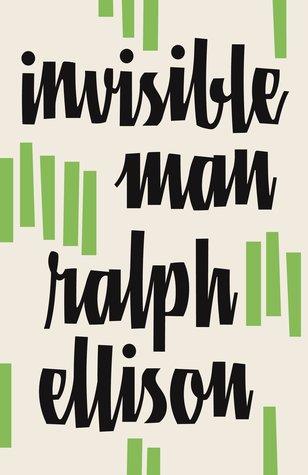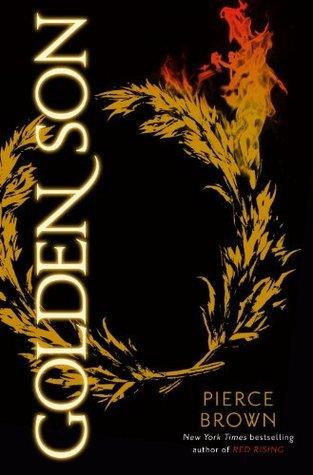Invisible Man by Ralph Ellison Book Summary
Discover a comprehensive summary and key insights of Ralph Ellison's "Invisible Man." Explore the themes, characters, and critical analysis in our in-depth review, perfect for students and literature enthusiasts alike. Uncover the powerful messages behind this classic novel and enhance your understanding today!
Invisible Man Book Summary
Ralph Ellison's groundbreaking novel Invisible Man explores the profound struggle of a Black man navigating identity and belonging in mid-20th century America. This powerful narrative follows an unnamed protagonist whose journey from the South to Harlem reveals the complex layers of racial invisibility and social alienation that defined the African American experience. Through masterful storytelling and rich symbolism, Ellison crafts a compelling examination of how society renders individuals invisible based on prejudice and preconceptions. The novel's exploration of identity crisis, political awakening, and the search for authentic selfhood continues to resonate with readers today, making it an essential work of American literature.
Discover the captivating world of Celaena Sardothien with our detailed Throne of Glass Book Summary, Review & Key Insights, offering a deep dive into plot, characters, and themes.
Invisible Man by Ralph Ellison - Introduction
You know what really surprised me about Invisible Man by Ralph Ellison? It’s how invisibility isn’t about being unseen physically—it’s about being ignored, misunderstood, or erased by society. I always thought invisibility was just a sci-fi thing or a metaphor for feeling alone, but this book made me rethink how people, especially Black Americans, can be invisible in plain sight. It’s powerful and kind of heartbreaking.
I picked up this classic because I wanted to dive into something that’s both literary fiction and deeply rooted in African American history and experience. Plus, I’d heard it was a cornerstone of American literature and figured it was time to see what all the fuss was about. At 581 pages, it’s a bit of a commitment—expect around 15-20 hours to really savor it—but honestly, every page felt worth it.
If you’re someone who’s curious about race, identity, and the complexities of society, or if you just love historical fiction that makes you think, this book is for you. It’s not just a novel; it’s a journey through the layers of invisibility we all experience in different ways. I think you’d appreciate how Ellison blends storytelling with these big ideas without ever feeling preachy.
So, if you want a book that challenges you, makes you reflect on what it means to be seen or unseen, and sticks with you long after you finish, give this one a shot. I’m glad I did.
What is Invisible Man About?

"Invisible Man" by Ralph Ellison tells the story of an unnamed Black protagonist who struggles with his identity and societal invisibility in a racially divided America. The book's main message emphasizes the importance of self-awareness and the quest for personal and social identity amidst oppression. Key concepts include the exploration of racial discrimination and its psychological effects, the search for authenticity in a conformist society, and the significance of community and connection in overcoming isolation. Through these themes, Ellison highlights the complexities of individuality within a collective experience.
About Book Author - Ralph Ellison
Tonight, we have someone whose journey to the page is as compelling as the stories he tells. Ralph Ellison didn't start out intending to write a novel that would redefine American literature.
- He was a student of music, a trumpeter, whose ear for rhythm and improvisation found its way into his prose. What's interesting about Ralph Ellison is his deep fascination with sound and electronics; he was an early audiophile, meticulously building his own hi-fi systems. This pursuit of clarity, perhaps, mirrors his literary quest. His experiences, from Oklahoma to Harlem, and his keen observations of the social fabric, led him to explore the profound sense of invisibility he witnessed. It wasn't just an idea; it was a lived reality he felt compelled to articulate, not only in Invisible Man but also through his insightful essays in collections like Shadow and Act and Going to the Territory. He brings a perspective forged in the crucible of American identity, making his voice uniquely resonant on this exploration of the American experience.
More Books To Find
Invisible Man - Book Overview
It's about a Black man's journey through society, grappling with his identity and invisibility in a world that refuses to see him as a person. The protagonist navigates through various experiences that highlight the struggles of race, individuality, and social expectations.
Ellison wrote it to challenge the notion of identity and to explore the complexities of being Black in America. He wanted to show that invisibility isn't just about being unseen physically but also about being ignored socially and culturally.
What sets this book apart is its deep psychological insight and the blend of surrealism with harsh reality. While many books tackle race, this one digs into the internal struggles of the protagonist, making it feel more like a personal odyssey than a mere social commentary.
One story that really stuck with me is when the protagonist gives a speech at a gathering, only to be met with mockery and condescension afterward. It hit me how he was celebrated in the moment but ultimately reduced to a caricature, illustrating the painful irony of seeking validation in a society that refuses to recognize your humanity. It’s a powerful reminder of how society can distort our identities and perceptions.
Key Insights of Invisible Man
Identity plays a central role in "Invisible Man." The narrator's journey illustrates the struggle to find and assert his own identity in a society that refuses to see him as an individual. This theme highlights the complexities of racial and personal identity, suggesting that societal perceptions can overshadow one's self-perception.
Isolation is another significant insight. The narrator's invisibility symbolizes the alienation experienced by African Americans. Despite being physically present, he feels disconnected from society, emphasizing the emotional and psychological toll of racism. This isolation drives him to seek belonging, often in misguided ways.
Power dynamics are intricately woven throughout the narrative. The protagonist encounters various groups and ideologies, each attempting to control his identity and narrative. This reflects the broader societal struggle for power and the ways in which individuals can be manipulated by external forces.
Visibility and invisibility serve as powerful metaphors. The narrator's journey from invisibility to a form of self-awareness represents a quest for recognition and validation. This transformation underscores the importance of being seen and acknowledged, not just by society but also by oneself.
Finally, the search for truth is a recurring theme. The protagonist's experiences lead him to question the nature of reality and the narratives imposed upon him. This quest for truth is both personal and collective, resonating with the broader African American experience in a racially divided society.
Who Should Read This Book
"Invisible Man" by Ralph Ellison is essential reading for anyone interested in themes of identity, race, and social invisibility. It resonates with readers who seek to understand the complexities of African American experiences and the broader implications of societal marginalization. Students of literature and sociology will find rich material for analysis, while those passionate about civil rights and social justice can draw parallels to contemporary issues. Ultimately, this profound novel appeals to anyone looking to explore the depths of human experience and the struggle for self-identity in a world that often overlooks individuality.
Read If You Are
- Interested in exploring themes of identity and race in America.
- Seeking a deeper understanding of social invisibility and its impact on individuals.
- A fan of powerful, thought-provoking literature that challenges societal norms.
Skip If You Are
- Looking for a light, easy read with straightforward plotlines
- Uninterested in exploring complex themes of identity, race, and social invisibility
- Avoidant of introspective and symbolic literary styles that require deep reflection
Important Takeaways from this Book
-
Reflect on Your Identity: Take 10 minutes today to write down your core values and beliefs. Understanding who you are is crucial for navigating life’s challenges and making decisions that align with your true self. This self-awareness helps you build confidence and authenticity in your interactions.
-
Engage in Active Listening: Practice active listening in your next conversation. Focus entirely on the speaker without interrupting. This fosters deeper connections and shows respect for others’ experiences, leading to more meaningful relationships. Remember, you can only listen if you set aside distractions.
-
Challenge Stereotypes: Identify one stereotype you encounter in your daily life. Make a conscious effort to challenge it by discussing it with someone or sharing an alternative perspective on social media. This action promotes awareness and encourages critical thinking, helping to break down societal barriers.
-
Volunteer for a Cause: Choose a local organization that supports underrepresented communities and volunteer your time. This not only helps others but also enriches your understanding of different experiences and perspectives. Start by researching organizations online or asking friends for recommendations.
-
Practice Empathy: Each day, make a point to put yourself in someone else's shoes. When faced with a disagreement or misunderstanding, pause and consider the other person's background and feelings. This practice enhances your emotional intelligence and improves your relationships, creating a more compassionate environment around you.
Book Review
I picked up "Invisible Man" by Ralph Ellison expecting a straightforward narrative about race and identity. What I got was a profound exploration of the complexities of the African American experience, told through a deeply introspective and sometimes surreal lens.
One of the book's greatest strengths is its rich, poetic writing style. Ellison's use of vivid imagery and metaphor really brought the protagonist's journey to life. For instance, the way he describes the "invisibility" of the narrator is haunting and thought-provoking, making me reflect on societal perceptions and personal identity. The pacing was a bit uneven at times, especially in the middle sections, but the powerful moments of clarity and insight made it worthwhile.
However, there were areas where the book fell short for me. Some passages felt overly dense, which occasionally disrupted the flow of the story. While I appreciate the depth of Ellison's ideas, I found myself lost in lengthy philosophical discussions that could have been more concise.
In comparison to similar classics like "The Souls of Black Folk" by W.E.B. Du Bois or "Native Son" by Richard Wright, I found "Invisible Man" to be more abstract and less direct in its social commentary. It invites readers to think critically rather than providing clear-cut answers.
Overall, I was left with a sense of admiration for Ellison's craft and the layers of meaning in his work. I would recommend this book to anyone interested in deep, reflective literature about race and identity. However, if you prefer straightforward storytelling or are looking for a quick read, this might not be the best fit for you.
Final Thoughts
If I'm being honest, finishing Invisible Man left me with a profound sense of introspection. The way Ralph Ellison explores themes of identity and race is incredibly powerful, and it really made me reflect on the societal structures that shape our lives. I'd definitely recommend this if you're someone who enjoys deep, thought-provoking literature and is open to grappling with complex issues. However, skip this one if you're looking for a straightforward narrative or a light read—it's anything but that.
The thing that surprised me most was how relevant the struggles of the protagonist still feel today. It’s a stark reminder of the ongoing conversations about race and invisibility in society. Months from now, I think the idea of being unseen, yet fighting for recognition, will really stick with me.
Would I read it again? Absolutely, but I’d recommend the full book over a summary. There’s so much nuance in Ellison’s writing that you just can’t capture in a brief overview. Overall, my reading experience was both challenging and rewarding, pushing me to think critically about the world around me.
Frequently Asked Questions
How long does it take to read Invisible Man?
Reading "Invisible Man" by Ralph Ellison, which has 581 pages, typically takes around 12 to 15 hours, depending on your reading speed. If you read for about an hour each day, you can finish it in about two weeks.
What makes "Invisible Man" different from other books in this genre?
Invisible Man stands out for its profound exploration of identity, race, and individuality through a deeply personal narrative. Unlike typical social commentaries, Ellison blends surrealism and existentialism, creating a unique voice that captures the complexities of African American experiences in a way that resonates universally.
Who is the target audience for Invisible Man
The target audience for "Invisible Man" includes readers interested in themes of race, identity, and social injustice. It appeals to those seeking a deeper understanding of the African American experience, as well as literary enthusiasts who appreciate complex narratives and profound philosophical questions.
Are there any criticisms or limitations of Invisible Man
Critics argue that "Invisible Man" can be overly abstract, making it challenging for some readers to grasp its themes. Additionally, some believe it lacks a clear resolution, leaving questions about identity and race unresolved, which may frustrate those seeking definitive answers.
What is the main theme of Invisible Man by Ralph Ellison
The main theme of "Invisible Man" by Ralph Ellison explores the complexities of identity and race in America. It delves into the struggles of African Americans for recognition and self-definition, highlighting the societal invisibility and the quest for personal and cultural identity amidst systemic oppression.
Tags:
Invisible Man, Invisible Man Author, Invisible Man Book, Invisible Man Book Description, Invisible Man Book Rating, Invisible Man Book Review, Invisible Man by Ralph Ellison, Invisible Man ISBN, Invisible Man Short Summary, Ralph Ellison

Michel Fisher
Michel Fisher is a passionate fiction enthusiast and book blogger who writes about emotional reads, character-driven stories, and contemporary romance authors that captivate hearts and minds.

Invisible Man
Book Overview
Description
First published in 1952 and immediately hailed as a masterpiece, Invisible Man is one of those rare novels that have changed the shape of American literature. For not only does Ralph Ellison's nightmare journey across the racial divide tell unparalleled truths about the nature of bigotry and its effects on the minds of both victims and perpetrators, it gives us an entirely new model of what a novel can be.As he journeys from the Deep South to the streets and basements of Harlem, from a horrifying "battle royal" where black men are reduced to fighting animals, to a Communist rally where they are elevated to the status of trophies, Ralph Ellison's nameless protagonist ushers readers into a parallel universe that throws our own into harsh and even hilarious relief. Suspenseful and sardonic, narrated in a voice that takes in the symphonic range of the American language, black and white, Invisible Man is one of the most audacious and dazzling novels of our century.
Key Points
Identity struggles define the protagonist
Characters
Mr. Norton, Jim Trueblood, Dr. Hebert Bledsoe, Mary Rambo, Lucius Brockway, Brother Jack, Tod Clifton, Ras the Exhorter, Sybil (Invisible Man), Unnamed Narrator
Publisher
Vintage
First Publish Date
04/14/52
Awards
National Book Award for Fiction (1953)





